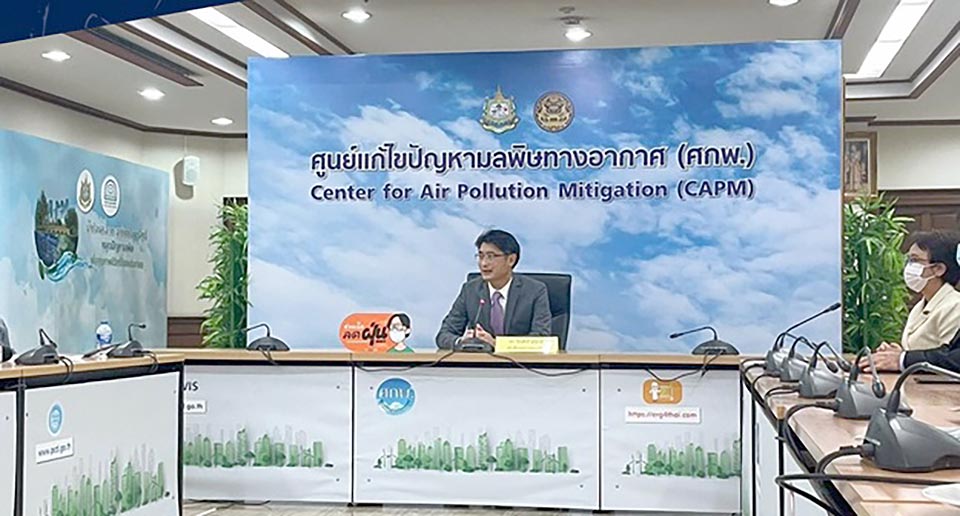
The Pollution Control Department (PCD) has said it hopes to reduce the number of heavily polluted days in Bangkok and 17 northern provinces by 10% next year by strictly controlling PM2.5 sources.
According to Department Chief Pinsak Suraswadi, the national environment board and the Cabinet agreed on an ad hoc plan to reduce haze pollution next year during a recent meeting. The plan’s primary focus will be on urban, agricultural and forest zones, with adjusted actions to be taken for each.
Pinsak noted that traffic is responsible for 63% of the city’s haze pollution, so the department will collaborate with partners such as the Bangkok Metropolitan Administration to set up additional checkpoints to test vehicle exhaust smoke. It will also provide low-sulfur dioxide gasoline from Bangchak and PTT stations during the haze season to reduce particulate matter.
Furthermore, the department will conduct extensive inspections of all 896 coal, iron-making and cement plants in the capital and neighboring provinces to ensure they meet the required emissions standards.
The PCD chief said the department of agricultural extension has set a goal for reducing the number of pollution hotspots in farming areas in 62 provinces by 10% next year. Active measures include reducing purchases of burnt sugarcane from newly harvested fields by 20% next year and banning the product entirely by 2024.
Pinsak also said efforts are being made to reduce forest fires by removing and destroying 3,000 tons of dried leaves and branches. In addition, a fire danger rating system will be used to assess the likelihood of such fires breaking out. (NNT)
 |
 |
 |





